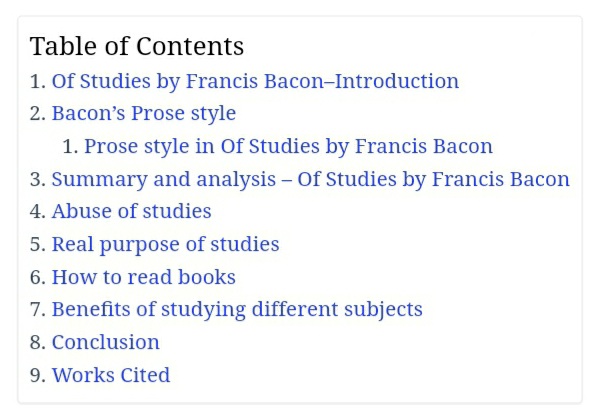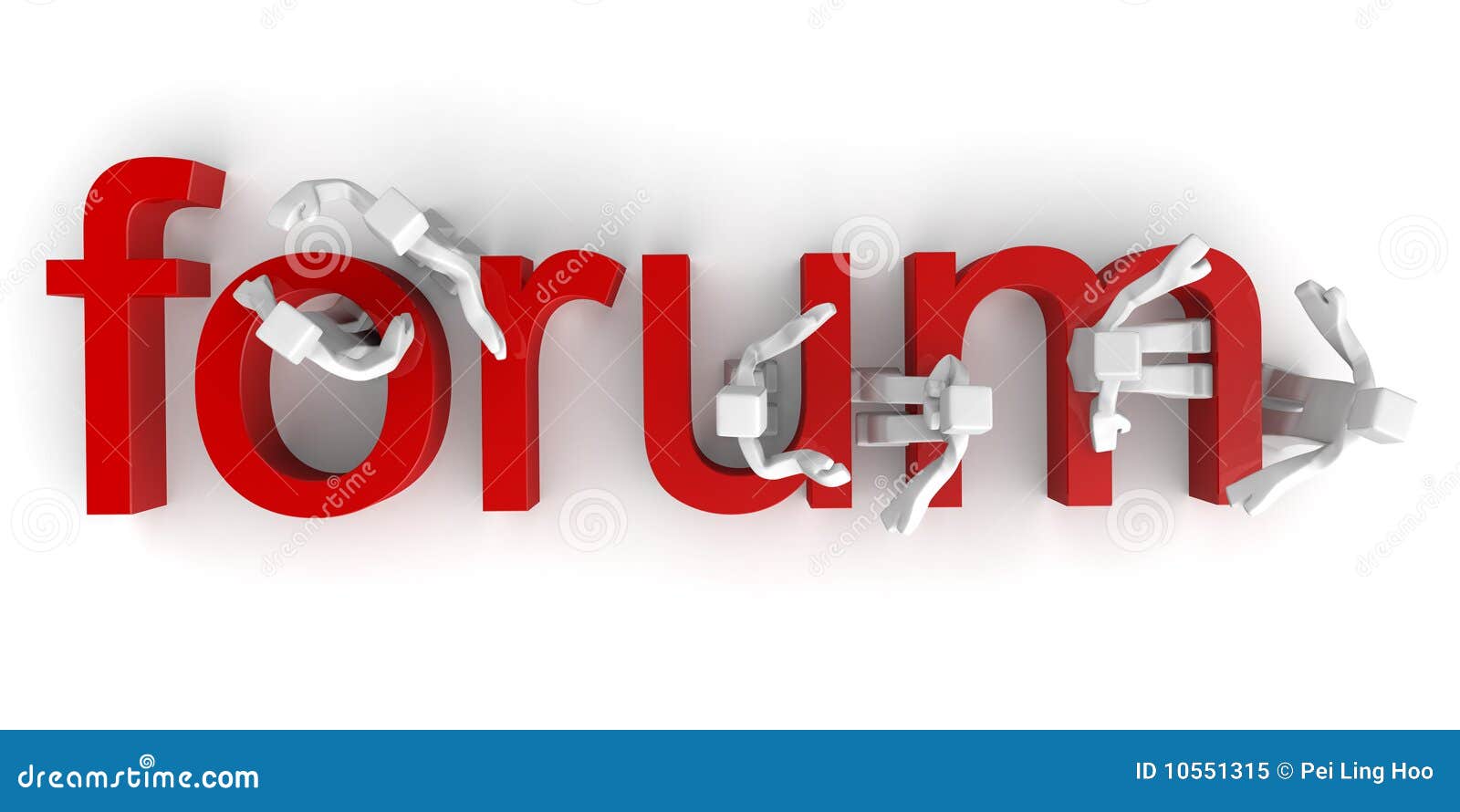Section outline
-

Welcome Speech:
A warm welcome to the Elizabethan and Jacobean Literature online course! I'm Emran Khan, your guide on this literary journey. Together, we'll explore the rich tapestry of this historical period through the works of brilliant minds like Shakespeare and Bacon.
I encourage active participation, vibrant discussions, and shared learning. Let's delve into the captivating worlds of sonnets, plays, and prose that have shaped our understanding of literature.
Welcome aboard, and let the exploration begin!
Best, Emran Khan
-
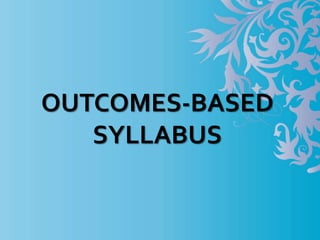
Course Objectives:
● to study the contributions of major literary figures
● to engage in interpretive arguments based on careful attention to individual texts
● To develop a good understanding of the European Renaissance in its literary context.
Learning Outcomes:
After completing this course, students will be able to:
● identify and state the literary characteristics of Elizabethan and Jacobean period.
● identify and analyze the impacts of Renaissance on the literature of this period.
● deconstruct and evaluate any literary texts of Elizabethan and Jacobean period to produce a successful critical analysis.
-
-
-
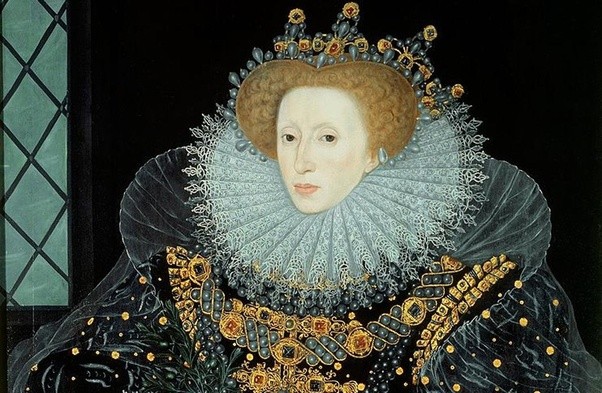

Learning Outcomes:
Understanding Historical Context:
- Students will gain an understanding of the historical context of Queen Elizabeth I's reign, including the political, social, and cultural landscape of the Elizabethan era. This includes knowledge of key events, influential figures, and the overall atmosphere of the time.
Exploration of Elizabethan Literature:
- Students will be introduced to the literary works of the Elizabethan period, examining the major genres, themes, and styles prevalent during Queen Elizabeth I's rule. This includes an exploration of prominent writers, poets, and playwrights of the time, such as William Shakespeare and Christopher Marlowe.
Critical Analysis and Interpretation:
- Through the study of primary texts and historical documents, students will develop critical thinking skills to analyze and interpret Elizabethan literature. This involves examining the cultural and societal influences on literary works, understanding the use of language and symbolism, and considering the broader implications of these works on the literary landscape.
-
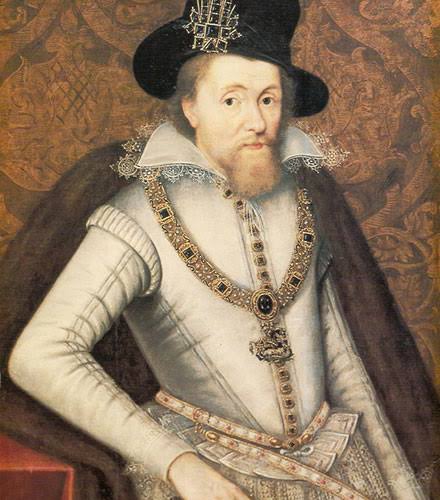
Learning Outcomes:
Historical Understanding:
- Students will develop a comprehensive understanding of the historical context surrounding King James I's reign, including political, social, and cultural aspects of the Jacobean era. This includes recognizing key events, societal shifts, and the overall atmosphere during this period.
Exploration of Jacobean Literature:
- The class will introduce students to the literary landscape of the Jacobean era, exploring major literary genres, themes, and styles prevalent during King James I's rule. This involves studying the works of significant writers and playwrights of the time, such as Ben Jonson and John Donne.
Critical Analysis and Comparative Study:
- Students will enhance their critical analysis skills by examining and interpreting Jacobean literature. Comparative studies with Elizabethan literature may be encouraged to identify shifts or continuities in themes, styles, and societal reflections. This fosters a nuanced understanding of literary evolution across historical periods.
-
KEY TOPICS- The Jacobean era refers to the period in English and Scottish history that coincides with the reign of James VI of Scotland (1567-1625), who also inherited the crown of England in 1603 as James I. The Jacobean era succeeds the Elizabethan era and precedes the Caroline era, and is often used for the distinctive styles of Jacobean architecture, visual arts, decorative arts, and literature which characterized that period.(More...)
-
Learning Outcomes:
Biographical Understanding:
- Students will gain a comprehensive understanding of the life, background, and significant contributions of Sir Francis Bacon. This includes exploring his education, political career, and the intellectual milieu in which he operated.
Exploration of Bacon's Philosophical and Literary Works:
- The class will delve into the philosophical and literary works of Francis Bacon. This involves studying his essays, philosophical writings, and contributions to the advancement of the scientific method. Students will explore Bacon's ideas on empiricism, induction, and his influence on the development of modern science.
Critical Analysis of Bacon's Ideas:
- Students will develop critical analysis skills to examine and evaluate the ideas presented by Francis Bacon. This includes understanding his views on knowledge, the scientific method, and his impact on the intellectual landscape of his time. Comparative analyses with other philosophers or thinkers may be encouraged to provide a broader context.
-
Contents:
- Who Was Francis Bacon?
- Early Life
- Counsel and Statesman
- Philosopher of Science
- Writing Career
- Death and Legacy
-
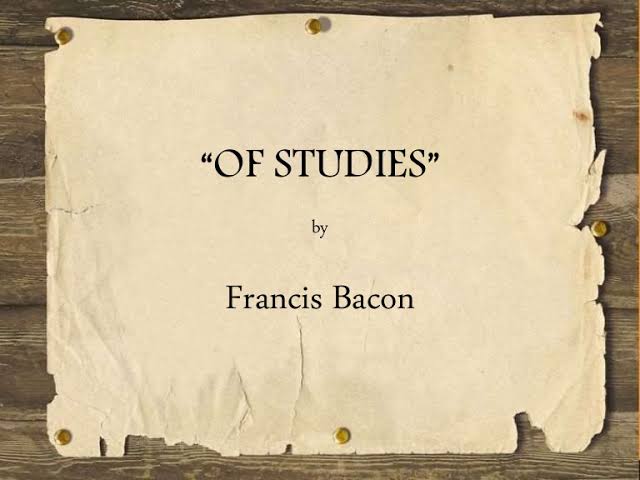
Learning Outcomes:
Comprehensive Understanding of "Of Studies":
- Students will gain a thorough understanding of Francis Bacon's essay "Of Studies." This involves dissecting the content, identifying key themes, and comprehending Bacon's perspectives on the value and purpose of education and knowledge.
Textual Analysis and Interpretation:
- The class will focus on textual analysis, examining the language, structure, and rhetorical devices used by Bacon in "Of Studies." Students will learn to interpret the essay in depth, uncovering layers of meaning and understanding the nuances of Bacon's arguments.
Application of Bacon's Ideas to Contemporary Contexts:
- Students will be encouraged to apply the insights from "Of Studies" to contemporary contexts. This involves critically assessing the relevance of Bacon's ideas in today's educational landscape, emphasizing the enduring nature of his thoughts on the pursuit of knowledge.
Class Discussions and Critical Engagement:
- The class will foster an environment for open discussions, allowing students to critically engage with Bacon's ideas. Through debates and discussions, students will deepen their understanding and refine their analytical skills.
-
Learning Outcomes:
Thorough Understanding of "Of Truth":
- Students will develop a comprehensive understanding of Francis Bacon's essay "Of Truth." This includes a detailed exploration of the themes, arguments, and philosophical insights presented by Bacon regarding the nature and significance of truth.
Analysis of Rhetorical Strategies:
- The class will focus on analyzing the rhetorical strategies employed by Bacon in "Of Truth." Students will examine the use of language, rhetorical devices, and persuasive techniques to enhance their understanding of how Bacon conveys his ideas.
Critical Examination of Truth Concepts:
- Students will engage in a critical examination of the various concepts of truth discussed by Bacon. This involves dissecting different aspects of truth, such as its utility, its relationship with time, and its impact on human affairs.
Application of Truth Concepts to Real-world Scenarios:
- The class will encourage students to apply the concepts of truth discussed by Bacon to real-world scenarios. This practical application aims to deepen their understanding of the relevance and implications of Bacon's philosophical ideas in everyday life.
-

Learning Outcomes:
Stylistic Analysis of Bacon's Works:
- Students will engage in a detailed analysis of Francis Bacon's writing style. This involves examining the characteristics of his prose, the use of language, and stylistic devices employed by Bacon in conveying his ideas.
Exploration of Bacon's Wisdom Literature:
- The class will delve into Bacon's wisdom literature, encompassing his essays and philosophical works. Students will explore the profound insights and practical wisdom embedded in Bacon's writings, understanding his views on human nature, society, and governance.
Philosophical Underpinnings of Bacon's Thought:
- Students will gain insight into the philosophical foundations of Bacon's thought. This includes understanding his empiricism, emphasis on observation and experimentation, and the role of science and knowledge in societal progress.
Comparative Analysis with Other Philosophers:
- The class may engage in comparative analyses, contrasting Bacon's philosophy with other prominent thinkers of his time or philosophical traditions. This comparative approach aims to enrich students' understanding of Bacon's unique contributions.
Application of Baconian Philosophy to Modern Contexts:
- Students will be encouraged to apply Bacon's philosophical ideas to contemporary contexts. This involves considering how Bacon's thoughts on knowledge, wisdom, and governance can inform present-day discussions and challenges.
-
The style of Bacon remains for the main part aphoristic, with the result that he is one of the most quotable of writers. There is a terseness of expression, and an epigrammatic brevity, in the essays of Bacon. His sentences are brief and rapid, but they are also forceful. “They come down like the strokes of a hammer’, says Dean Church. This terseness is often achieved by leaving out superfluous epithets and conjunctions and connectives. It is seldom carried to the extent of causing obscurity, though one or two instances do exist where this extreme condensation has caused great difficulty in understanding the meaning. This is a remarkable power of compressing into a few words an idea which other writers may express in several sentences. The essays of Bacon in fact have to be read slowly because of the compact and condensed thought... (READ MORE)
-
There is no doubt that Bacon’s essays are a treasure house of worldly wisdom. The term worldly wisdom means a wisdom which is necessary for worldly success. It does not need any deep philosophy or any ideal morality. But Bacon was a man of high wisdom, as he himself pronounced, “I have taken all knowledge to be my province”. Bacon also preached morality but his morality is subordinate to worldly success and he never hesitated to sacrifice it for worldly benefit. His essays are rich with the art which a man should employ for achieving success in his life, such as shrewdness, sagacity, tact, foresight, judgment of character and so on... (READ MORE)
-
Francis Bacon, the great scholar, jurist and essayist of his time is an ambitious person and of whom ambition becomes. He lives in a world of action and formulated a philosophy for a man of action. Bacon has evolved a whole body of morality and ethics for advancement and personal promotion in life. Bacon is a man of great practical wisdom and experience and in his personal life, he practiced much more than what he practiced to his readers. He is very shrewd observer of society and he had a keen insight into the nature and affairs of men... (READ MORE)
-
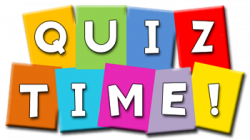
Quiz - 1 will be on 7th Class
Syllabus: Lecture 1 to 6
Exam type: Critical Analysis (Creative Questions)
Total Marks: 15
Time: 30 mins
Mark Distribution Rubric:
Areas
Grammar and Structure
5
3
2
=05
No grammatical mistakes and Structure is perfect
Have some mistakes and Moderate Structure
Lots of mistakes and no structure followed
Standard of Language
5
3
2
=05
Language standard is very high
Language standard is Moderate
Language standard is Low
To the Point Answers
5
3
2
=05
Answers are perfectly to the Point
Moderate Answer
No to the Point
Total
=15
Total Marks: 15
-
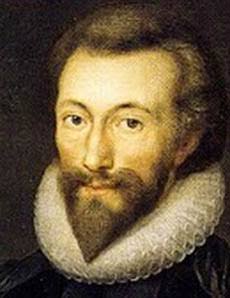
Learning Outcomes:
Biographical Understanding of John Donne:
- Students will gain insights into the life and background of John Donne. This includes exploring Donne's biography, historical context, and the key events that shaped his literary career.
Introduction to Metaphysical Poetry:
- The class will provide an introduction to Metaphysical poetry, a genre to which John Donne belongs. Students will understand the distinctive features of Metaphysical poetry, such as intellectual complexity, conceits, and the fusion of emotion and thought.
In-depth Analysis of "The Sun Rising":
- The primary focus will be on a detailed analysis of John Donne's poem "The Sun Rising." Students will explore the themes, metaphors, and linguistic intricacies of the poem, gaining a nuanced understanding of Donne's poetic style.
Exploration of Donne's Love Poetry:
- The class will delve into Donne's broader contributions to love poetry. Students will explore how Donne's conception of love differs from conventional Petrarchan traditions, emphasizing his unique metaphysical approach.
Class Discussions and Interpretative Exercises:
- The session will include interactive discussions and interpretative exercises to encourage students to critically engage with Donne's poetry. This may involve exploring different interpretations of "The Sun Rising" and discussing its relevance in the context of love poetry.
-
Dear Students,
Here is the Text of The Sun Rising by John Donne.
Please CLICK HERE
-
Learning Outcomes:
Understanding of Metaphysical Poetry:
- Develop a deep understanding of the characteristics and themes associated with Metaphysical poetry, with a specific focus on John Donne's contributions to the genre.
Critical Analysis Skills:
- Hone critical analysis skills to dissect and interpret complex poetic works, exploring the layers of meaning, metaphors, and symbolism employed by John Donne.
Appreciation of Donne's Stylistic Nuances:
- Gain an appreciation for John Donne's unique stylistic nuances, including his use of conceits, wit, and intellectual reasoning in crafting poems like "Valediction: A Forbidden Mourning."
Contextual Awareness:
- Acquire knowledge about the historical and cultural context that influenced John Donne's poetic compositions, recognizing the interplay between personal experiences and broader societal influences.
Interpretation of Love and Spirituality:
- Explore and interpret the thematic elements of love and spirituality as presented in "Valediction: A Forbidden Mourning," and understand how these themes align with Donne's broader philosophical outlook.
-

Learning Outcomes:
Comprehensive Exploration of John Donne's Life:
- Students will engage in a thorough exploration of John Donne's life, delving into biographical details, historical context, and the socio-cultural milieu that influenced his literary works.
Examination of Donne's Evolving Literary Style:
- The class will analyze the evolution of John Donne's literary style over different periods of his career. This involves studying the transition from his early love poetry to later religious and metaphysical works.
In-depth Analysis of Selected Poems and Prose:
- Students will undertake a detailed analysis of selected poems and prose by John Donne. This may include examining his metaphysical poetry, love poems, and religious writings to comprehend the diverse themes and styles employed by Donne.
Understanding Donne's Metaphysical Conceits:
- The session will focus on unraveling the intricate metaphysical conceits employed by Donne in his poetry. Students will learn to decipher the complex imagery and intellectual depth embedded in Donne's metaphors.
-

Assessment Instructions:
Syllabus: John Donne and Francis Bacon
Exam type: Explanation
Number of Questions: Answer 1 out of 2
Time: 45mins
Total Marks: 15
Mark Distribution Rubric:
Areas
Grammar and Structure
5
3
2
=05
No grammatical mistakes and Structure is perfect
Have some mistakes and Moderate Structure
Lots of mistakes and no structure followed
Standard of Language
5
3
2
=05
Language standard is very high
Language standard is Moderate
Language standard is Low
To the Point Answers
5
3
2
=05
Answers are perfectly to the Point
Moderate Answer
No to the Point
Total
=15
-
Learning Outcomes:
Biographical Overview of Ben Jonson:
- Detailed exploration of Ben Jonson's life, including his background, education, and the socio-cultural context of the Elizabethan and Jacobean eras.
Introduction to Jonson's Literary Contributions:
- Overview of Ben Jonson's significant contributions to Elizabethan and Jacobean literature, encompassing his works as a playwright, poet, and critic.
Focus on "Volpone" as a Satirical Comedy:
- In-depth analysis of Jonson's play "Volpone," emphasizing its classification as a satirical comedy.
- Examination of the themes, characters, and satirical elements present in "Volpone."
Exploration of Jonson's Literary Style:
- Study of Ben Jonson's distinctive literary style, including his use of language, characterization, and the influence of classical models on his works.
-
Dear Students,
To know all about Ben Johnson please -
1] CLICK HERE
2] LIFE AND CAREER OF BEN JOHNSON -
Dear Students,
To know about Ben Jonson: as Renaissance Playwright, Renaissance Man
PLEASE CLICK HERE -
-
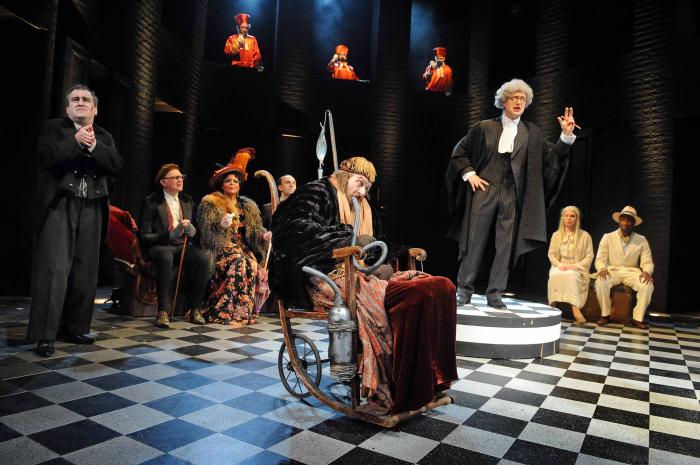
Learning Outcomes:
Comparative Analysis with Contemporary Playwrights:
- Comparative examination of Ben Jonson's style, themes, and approach with other notable playwrights of his time, providing insights into the literary landscape of the Jacobean period.
Class Discussions and Interpretative Exercises:
- Promotion of interactive class discussions and interpretative exercises to encourage critical engagement with Ben Jonson's life, works, and the satirical elements in "Volpone."
-
Learning Outcomes:Comprehensive Reading of "Volpone":
- In-depth analysis of the complete text of Ben Jonson's "Volpone," covering all acts and scenes.
Character Study and Development:
- Examination of the characters in "Volpone," including their motivations, traits, and roles in the unfolding plot.
Exploration of Themes and Motifs:
- Thorough exploration of the central themes and motifs present in "Volpone," such as greed, deception, and the consequences of moral corruption.
Understanding Jonson's Satirical Techniques:
- Analysis of Jonson's use of satire throughout the play, dissecting specific instances and techniques employed to critique societal norms and human vices.
Contextualization within Jacobean Society:
- Placing "Volpone" within the socio-cultural context of the Jacobean era, understanding how Jonson's satirical commentary reflects the concerns and dynamics of the time.
-
Dear Students,
Get the easiest short summary of Volpone- HERE
Hope this will help you to understand the main story.
Thank you.
-
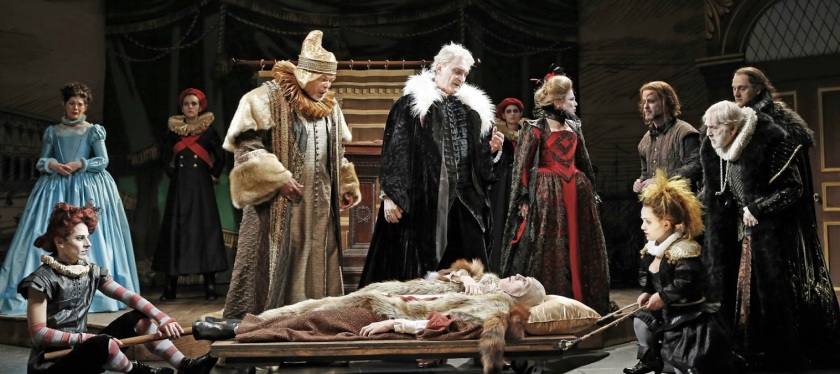
Learning Outcomes:
Comparative Analysis with Other Jonsonian Works:
- Comparative study of "Volpone" with other notable works by Ben Jonson, exploring recurring themes and stylistic elements in the playwright's body of work.
Class Discussions and Critical Interpretation:
- Facilitation of class discussions for students to share insights, interpretations, and engage critically with the full drama of "Volpone."
-
THE LIST OF CHARACTERS OF VOLPONE IS HERE
-
-
DEAR STUDENTS,
PLEASE CLICK HERE TO GET THE TEXT ANALYSIS
-
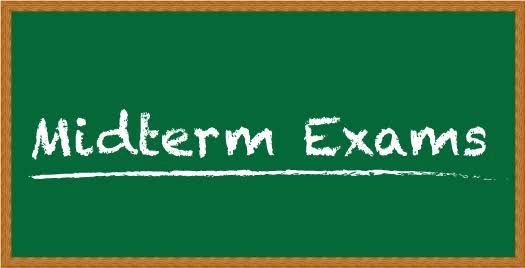
Dear Student,
Welcome to the Midterm.
Give your best.Assessment Instructions:
Question Patterns and Marks Distributions:
1. You have to answer 1 question out of 2 questions. Marks -1x15=15
2. You have to answer 1 short question out of two. Marks -1x5=5
3. You have to answer 1 explanation out of 2 explanations. Marks -1x5=5
Total: 25 Marks
-
-
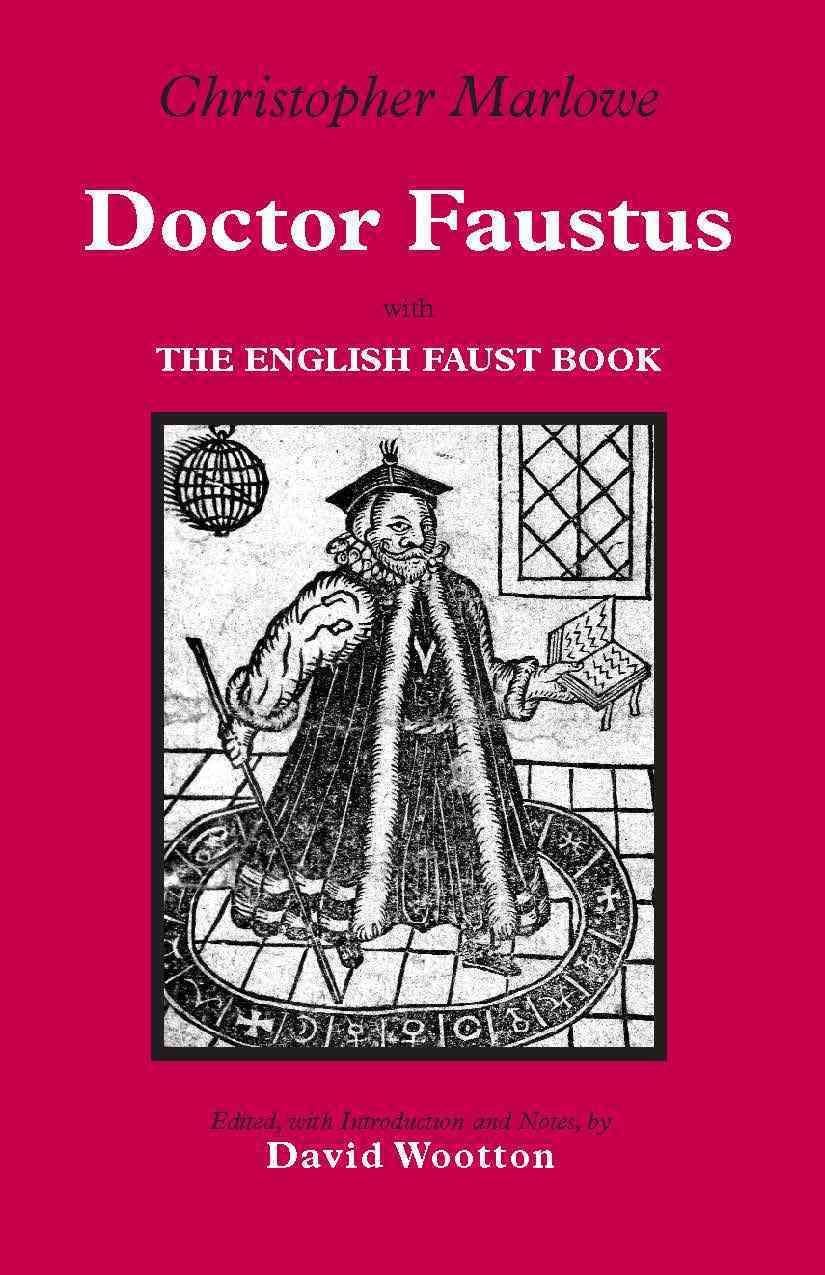
Learning Outcomes:Biographical Overview of Christopher Marlowe:
- Detailed exploration of Marlowe's life, highlighting key biographical details and the socio-cultural context of the Elizabethan era.
Introduction to "Doctor Faustus":
- Overview of Christopher Marlowe's renowned play "Doctor Faustus," encompassing its themes, characters, and the influence of Renaissance humanism.
Analysis of the Tragic Hero:
- In-depth examination of the character of Doctor Faustus as a tragic hero, considering his aspirations, choices, and ultimate fate.
Exploration of Themes and Motifs:
- Thorough exploration of central themes and motifs in "Doctor Faustus," such as the pursuit of knowledge, the consequences of unchecked ambition, and the conflict between good and evil.
-
-
1] CLICK HERE to get the short Summary
2] CLICK HERE to get another Summary
-
-

Assessment Instructions:
We will do an interactive analysis on the topic of Literature in our class and you have to submit your work here.
Rubrics:
1. Organization: 1
2. Content and analysis : 3
4. Presentation: 1
-

Assessment Instructions:
You have to submit your PowerPoint slides here.
You have to record a video of your presentation.
Upload it to Google Drive with the following settings: anyone with the link on the internet.
Rubrics:
1. Fluency: 3
2. Knowledge of the content: 2
3. Pronunciation: 3
Total: 8
-

Learning Outcomes:
Introduction to John Webster:
- Biographical overview of John Webster, emphasizing his contributions to Jacobean drama and the cultural context of the time.
Overview of "The Duchess of Malfi":
- Introduction to the play, covering its plot, characters, and major themes, setting the stage for an in-depth exploration.
Character Study and Analysis:
- In-depth analysis of key characters in "The Duchess of Malfi," delving into their motivations, conflicts, and contributions to the unfolding narrative.
Themes and Symbolism:
- Exploration of central themes and symbolic elements within the play, such as power, corruption, revenge, and the status of women in Jacobean society.
Dramatic Techniques and Style:
- Analysis of John Webster's dramatic techniques, including his use of language, imagery, and the play's structure, contributing to the overall impact on the audience.
-

Assessment Instructions:
Topics: A creative question from the play The Duchess of Malfi
Marks: 15
Mark Distribution Rubric:
Areas
Grammar and Structure
5
3
2
=05
No grammatical mistakes and Structure is perfect
Have some mistakes and Moderate Structure
Lots of mistakes and no structure followed
Standard of Language
5
3
2
=05
Language standard is very high
Language standard is Moderate
Language standard is Low
To the Point Answers
5
3
2
=05
Answers are perfectly to the Point
Moderate Answer
No to the Point
Total
=15
-

Assessment Instructions:
1. You have to answer 2 broad questions out of 3. Marks 15x2=30
2. You have to answer 1 short question out of 2. Marks 1x5=5
3. You have to answer 1 explanation out of 2. Marks 1x5=5
Total: 40 Marks
Text:
Doctor Faustus
The Duchess of Malfi
Selective poems from John Donne
Mark Distribution Rubric:
Areas
Grammar and Structure
5
3
2
=10
No grammatical mistakes and Structure is perfect
Have some mistakes and Moderate Structure
Lots of mistakes and no structure followed
Standard of Language
5
3
2
=10
Language standard is very high
Language standard is Moderate
Language standard is Low
To the Point Answers
5
3
2
=20
Answers are perfectly to the Point
Moderate Answer
No to the Point
Total
=40





